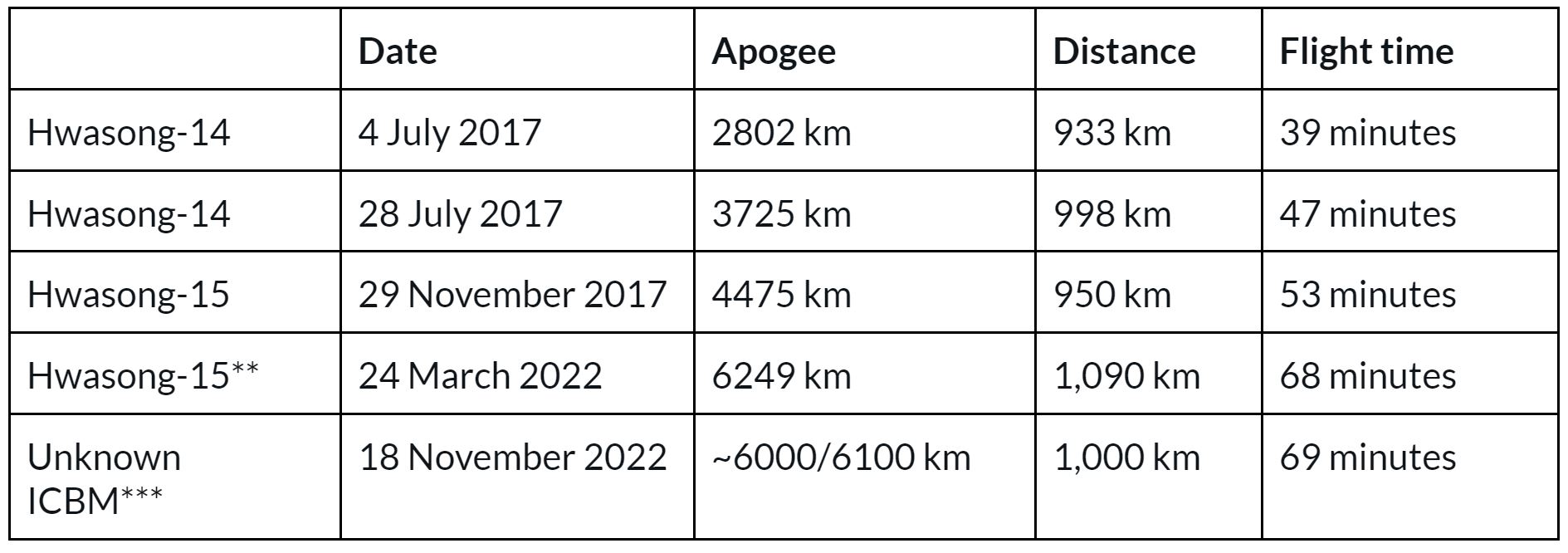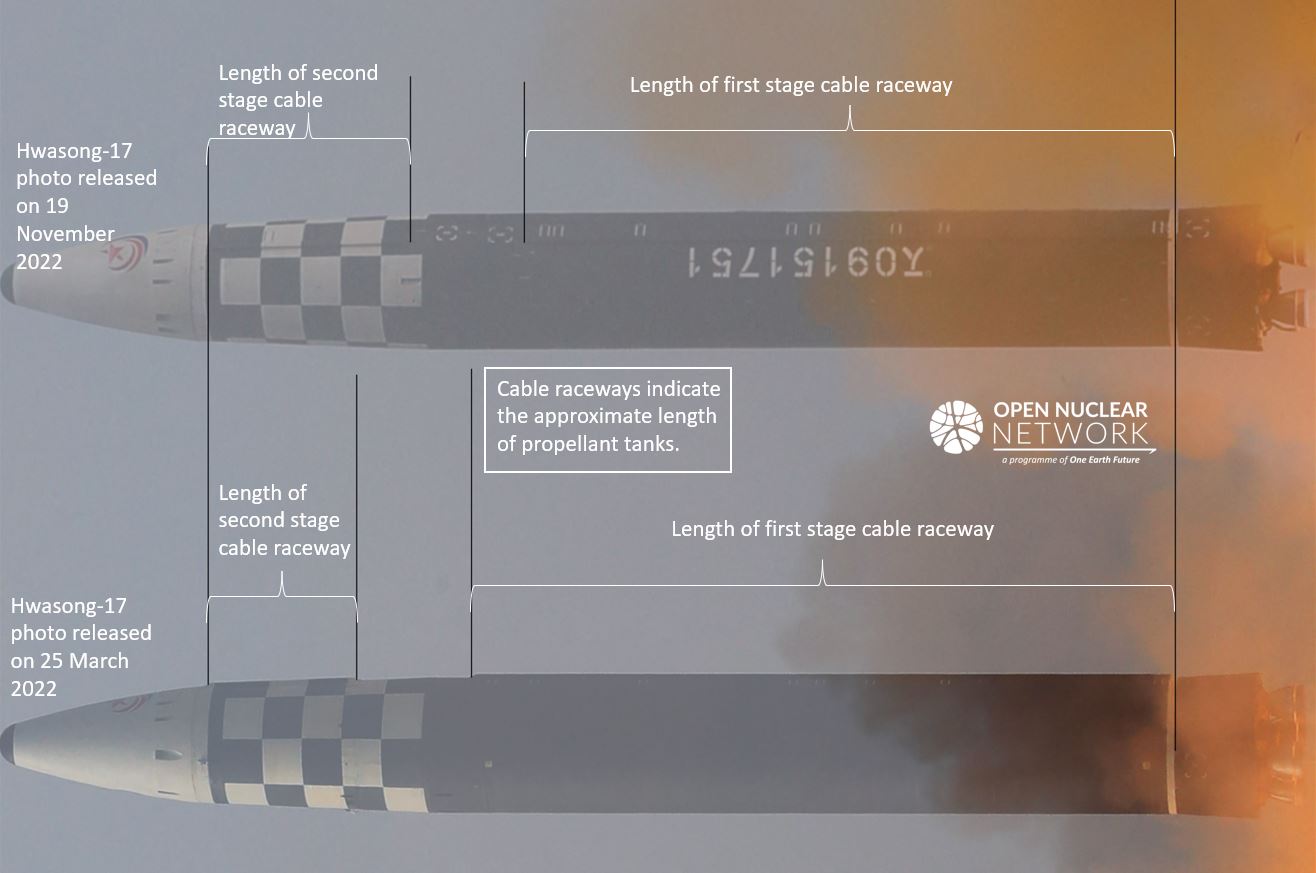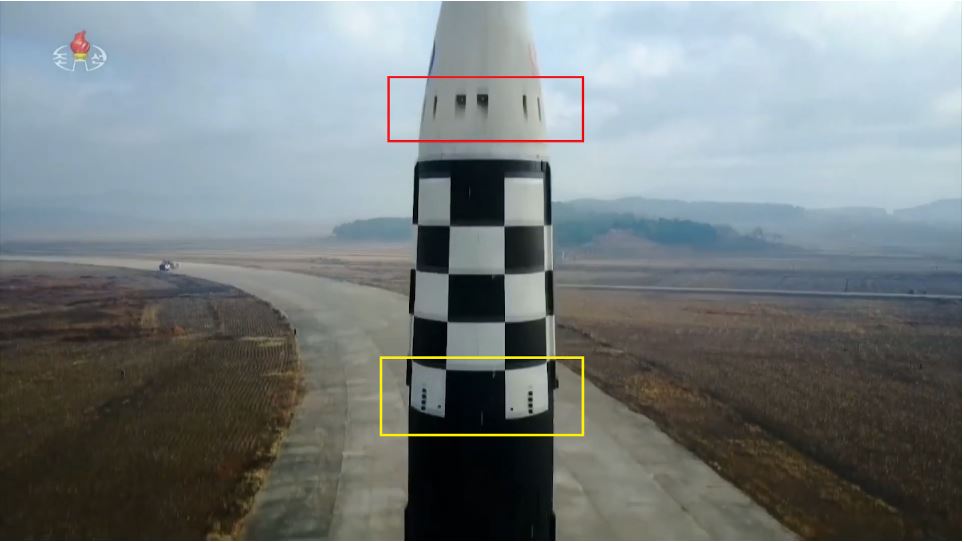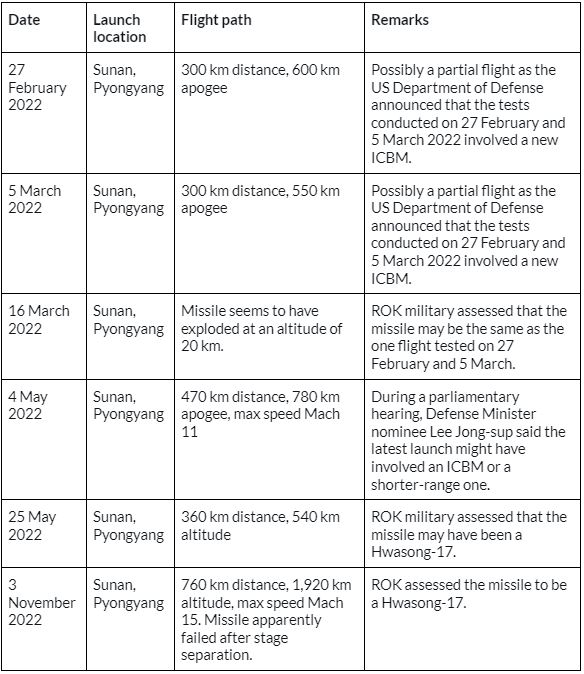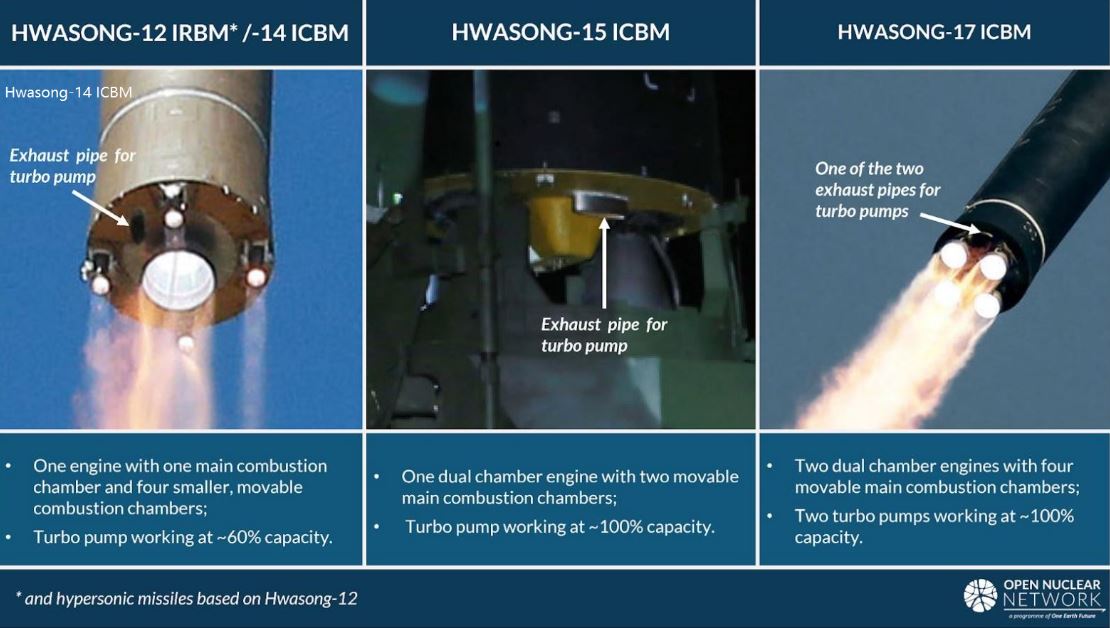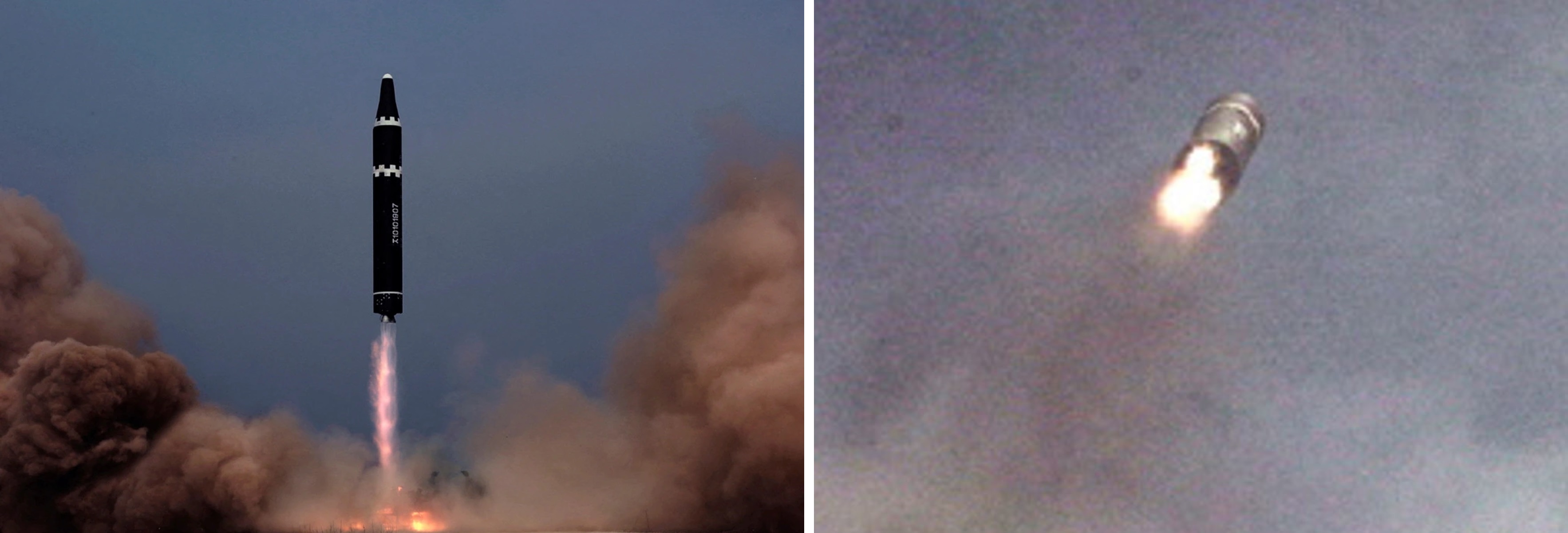[1] Tianran Xu, Strong Indicators of DPRK's Next Satellite/ICBM Launch, Open Nuclear Network, 14 March 2022, available at: https://opennuclear.org/en-gb/node/1624; Song Sang-ho and Kang Yoon-seung, N. Korea seems to have failed in suspected ballistic missile launch: S. Korean military, Yonhap News Agency, 16 March 2022, available at: https://en.yna.co.kr/view/AEN20220316003653325; Song Sang-ho, N. Korea fires 1 ballistic missile toward East Sea: S. Korean military, Yonhap News Agency, 4 May 2022, available at, https://en.yna.co.kr/view/AEN20220504005152325?input=tw; Song Sang-ho and Kang Yoon-seung, N. Korea fires 3 ballistic missiles, including 1 suspected ICBM: S. Korean military, Yonhap News Agency, 25 May 2022, available at: https://en.yna.co.kr/view/AEN20220525000755325; N. Korea fires one ICBM toward East Sea: S. Korean military, Yonhap News Agency, 18 November 2022, available at: https://en.yna.co.kr/view/AEN20221104001655325?section=nk/nk
[2] Press Statement of DPRK FM, KCNA, 17 November 2022, available at: http://kcna.kp/en/article/q/07733144f2a1cdcb2d26358a2bf670f9.kcmsf
[3] S. Korea's F-35A stealth jets hold guided bomb strike drills targeting N. Korea's missile launchers, Yonhap News Agency, 18 November 2022, available at: https://en.yna.co.kr/view/AEN20221118007351325?input=tw
[4] Lee Haye-ah, Yoon orders execution of strengthened extended deterrence measures after N.K. missile launch, Yonhap News Agency, 18 November 2022, available at: https://en.yna.co.kr/view/AEN20221118003852315?section=nk/nk
[5] Report of General Staff of KPA on Its Military Operations Corresponding to U.S.-South Korea Combined Air Drill, Rodong Sinmun, 7 November 2022, available at: http://www.rodong.rep.kp/en/index.php?MTJAMjAyMi0xMS0wNy1IMDA2QDE1QDFAQDBAMQ==
[6] Shin Ji-hye, Yoon-Xi summit reveals gap in approach to North Korea, Korea Herald, 16 November 2022, available at: https://www.koreaherald.com/view.php?ud=20221116000607; Foreign Ministry Spokesperson Mao Ning's Regular Press Conference, Foreign Ministry of the People's Republic of China, 14 November 2022, available at: https://www.fmprc.gov.cn/mfa_eng/xwfw_665399/s2510_665401/2511_665403/202211/t20221114_10974542.html
[7] Tianran Xu, Katsuhisa Furukawa, Elin Bergner, Kristiana Nitisa, Escalating Tensions on the Korean Peninsula, Open Nuclear Network, 11 November 2022, available at: https://opennuclear.org/publication/escalating-tensions-korean-peninsula?language_content_entity=en
[8] S. Korean military says no info on N. Korea's Hwasong-17 ICBM deployment, Yonhap News Agency, 21 November 2022, available at: https://en.yna.co.kr/view/AEN20221121004200325?section=nk/nk
[9] Tianran Xu, Strong Indicators of DPRK's Next Satellite/ICBM Launch, Open Nuclear Network, 14 March 2022, available at: https://opennuclear.org/en-gb/node/1624; Song Sang-ho and Kang Yoon-seung, N. Korea seems to have failed in suspected ballistic missile launch: S. Korean military, Yonhap News Agency, 16 March 2022, available at: https://en.yna.co.kr/view/AEN20220316003653325; Song Sang-ho, N. Korea fires 1 ballistic missile toward East Sea: S. Korean military, Yonhap News Agency, 4 May 2022, available at, https://en.yna.co.kr/view/AEN20220504005153325; Song Sang-ho and Kang Yoon-seung, N. Korea fires 3 ballistic missiles, including 1 suspected ICBM: S. Korean military, Yonhap News Agency, 25 May 2022, available at: https://en.yna.co.kr/view/AEN20220525000755325; N. Korea fires one ICBM toward East Sea: S. Korean military, Yonhap News Agency, 18 November 2022, available at: https://en.yna.co.kr/view/AEN20221104001655325?section=nk/nk
[10] S. Korean military says no info on N. Korea's Hwasong-17 ICBM deployment, Yonhap News Agency, 21 November 2022, available at: https://en.yna.co.kr/view/AEN20221121004200325?section=nk/nk
[11] Biden says U.S. will have to take “defensive” steps if N. Korea conducts nuclear test, Yonhap News Agency, 15 November 2022, available at: https://en.yna.co.kr/view/AEN20221114009751325
[12] Tianran Xu, Katsuhisa Furukawa, Elin Bergner, Kristiana Nitisa, Escalating Tensions on the Korean Peninsula, Open Nuclear Network, 11 November 2022, available at: https://opennuclear.org/publication/escalating-tensions-korean-peninsula?language_content_entity=en
[13] Kim Soo-yeon and Chae Yun-hwan (8th LD) N. Korea's ICBM launch apparently failed; more SRBM shots follow allies' decision to extend air drills, Yonhap News Agency, 3 November 2022, available at: https://en.yna.co.kr/view/AEN20221005004361325?section=nk/nk
[14] Tianran Xu, Katsuhisa Furukawa, Elin Bergner, Kristiana Nitisa, Escalating Tensions on the Korean Peninsula, Open Nuclear Network, 11 November 2022, available at: https://opennuclear.org/publication/escalating-tensions-korean-peninsula?language_content_entity=en
[15] Tianran Xu, Katsuhisa Furukawa, Elin Bergner, Kristiana Nitisa, Escalating Tensions on the Korean Peninsula, Open Nuclear Network, 11 November 2022, available at: https://opennuclear.org/publication/escalating-tensions-korean-peninsula?language_content_entity=en
